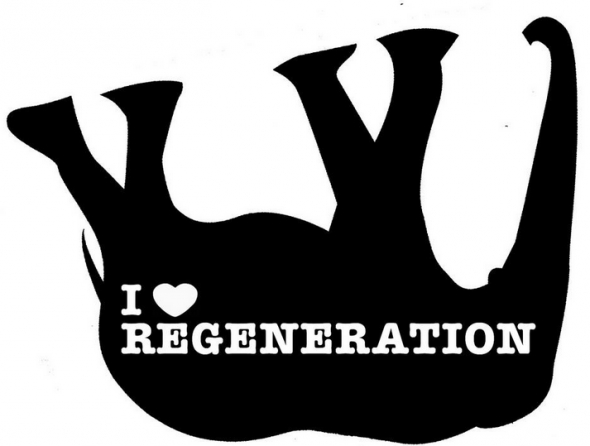Call for Papers: Art and Housing Struggles: between art and political organising
First Announcement and Call for Papers:
Art and Housing Struggles: between art and political organising
London, 31 May to 1 Jun 2018
Across the world, cities are experiencing a so-called housing crisis (Madden and Marcuse, 2016; Edwards, 2016; Brown, 2003; etc.). Financialisation of land and housing (Aalbers, 2016), the increasing dominance of rent (Walker, Jeraj, 2016) and cuts in social wages have degraded the lives of millions of people. Speculative housing bubbles, evictions, lack of social housing, and privatization combined with civic disempowerment, gentrification and lack of maintenance of social housing have amplified a general sense of frustration concerning housing. Indeed, these combined factors are experienced as systemic housing violence (European action coalition for right to housing and the city, 2016; Minton, 2017, Lees etc., 2016; Paton and Cooper, 2017; etc.). In response to this, self-organized housing movements have emerged over the last decade including increased neighborhood campaigns, tenants and renters’ initiatives, anti-gentrification and anti-eviction groups, as well as collaborative local and global housing networks.
For long time art has been integral to the neoliberal governance and policies around ‘housing regeneration’. Art is expected to produce social and economic outcomes, to regenerate the hollowed-out economies of postindustrial cities and to energise communities – regardless of a total paucity of evidence that the arts can perform any of these tasks (Campbell, Cox, O’Brian, 2016). In some parts of the world, national public institutions, private developers, supra-national institutions and NGOs are keen to sponsor socially-engaged art projects. The role of art in ‘the housing regeneration’ shows that art is an integral part of current capitalist mutations that are turning the neoliberal art subject in a source of capital (Sholette 2017, McRoobe 2016).
The focus of this conference are the contradictions and potentials of art in contemporary housing struggles. We intend to continue building on previous efforts to connect art and housing in discussions surrounding gentrification and social housing (Erdemci and Phillips, 2012; Vona, 2016) as well as rethinking art and housing trough social reproduction (Loyd, 2017; Dimitrakaki and Loyd, 2017). We are interested in ‘a fragile but dynamic exchange between art and political organising, including analysing and organising within a close proximity to housing movements’ (Ultra-red). Questions to be tackled include, but are not restricted to:
- artistic methods for social actions and housing struggles
- the potentials and pitfalls of struggles against artwashing
- art and the everyday (un)making of home and homing practices
- dealing with victories and losses in housing struggles through art
- the merging of art and activism in housing struggles
- art, class and housing struggles
- feminism, art and housing struggles
- art, racialized dispossession and housing struggles
- art and migrant housing struggles
- art and politics of ‘staying put’
- art and squatting
- art and housing protests
- building housing movement trough art organising
- revolting subjects.
Conference will include participation of Ultra-Red member Dont Rihne (USA). Ultra-red is an international sound art collective founded in 1994 by two Los Angeles AIDS activists that studies, develops, and tests procedures for collective listening that contribute directly to political struggles. The group has been active in the uncompromising Boyle Heights community struggles against art galleries opening in this long term working class migrant community and has been instrumental in founding the recent city-wide L.A. Tenants Union in 2015 to organise against gentrification and mass displacement.
We are interested in paper proposals (including theoretical and methodological proposals, comparative studies, and case studies), as well as creative entries (including films, visual art pieces, performances, music, community art, collaborative projects, agitprop etc.), from scholars and art practitioners working on art and housing. Proposed papers must be previously unpublished and eligible for selection for potential publication. Please note that those selected will need to be fully developed by the end of August 2018 in order to undergo peer-review. Papers must be in English.
• Paper proposals should include a title, an abstract of max. 300 words, and a brief biography.
• Creative entries should include a title, a short description of max 500 words, brief bio and a web link to the work.
Proposals for papers and creative entries can be submitted until 28 Feb 2018.
Please address proposals to: digitalstorymakingresearch<AT>gmail.com
Proposers will be informed by 5 March 2018 whether their proposal has been accepted.
The international conference Art and Housing Struggles: between art and political organising will be hosted by The Centre for Research in Digital Storymaking and will be held in the School of Arts and Creative Industries at London South Bank University. This conference is generously supported by the The Centre for Research in Digital Storymaking, at London South Bank University and the European Union’s Horizon 2020 research and innovation programme under the Marie Sklodowska-Curie grant agreement No 707848.
Timeline:
Registration for conference will open online on 12 March 2018 and will include lunch/coffee/refreshments on both days, wine reception and entry to all the sessions.
Full Conference Early Bird (by 1 May) £50.00
Full Conference (by 31th May) £100.00
Full Conference Postgraduate/Unwaged by 31th May £25.00
Important: We have a range of fee waver bursaries; please email us for details on: digitalstorymakingresearch<AT>gmail.com
Conference organizers: Dr Ana Vilenica, Marie Curie research fellow at LSBU and Dr Elena Marchevska, Senior Lecturer in Drama and Performance at LSBU
Mute Books Orders
For Mute Books distribution contact Anagram Books
contact@anagrambooks.com
For online purchases visit anagrambooks.com







